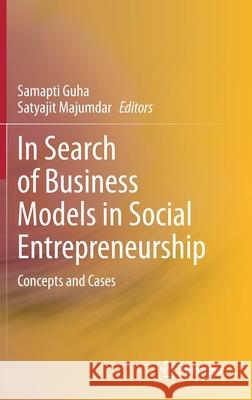In Search of Business Models in Social Entrepreneurship: Concepts and Cases » książka
topmenu
In Search of Business Models in Social Entrepreneurship: Concepts and Cases
ISBN-13: 9789811603891 / Angielski / Twarda / 2021 / 291 str.
Kategorie:
Kategorie BISAC:
Wydawca:
Springer
Język:
Angielski
ISBN-13:
9789811603891
Rok wydania:
2021
Wydanie:
2021
Ilość stron:
291
Waga:
0.60 kg
Wymiary:
23.39 x 15.6 x 1.91
Oprawa:
Twarda
Wolumenów:
01
Dodatkowe informacje:
Wydanie ilustrowane











